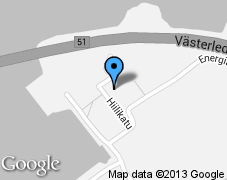The Curse of the Craft Industry
I read with interest an article in ReadWriteWeb about the launch of a new cookie cutter design for mobile web services. The thing that was interesting was the how the author, Dan Rowinski, positioned the idea that it might be a negative thing for services that make it easy to create sites and apps. His question to mobile web developers was "Are we going back to a mass of websites that all look the same, back to the era of Netscape and boring design? Or are services like FiddleFly a good thing for the development community?" The readers comments that came back were predictable:
- - if you make it easy you cannot produce sophisticated services
- - you can only do simple stuff with WYSIWYG
- - to really create an engaging presence you need to create a unique service
The presumption that efficiently produced products and services should be any less engaging, powerful or sophisticated is an interesting position for the industry to adopt. Clearly, almost every other major industry in the world has worked out how you can combine "cookie cutter" production with customer delight. To move forward, the digital industry has to break this mentality of hand-crafted is the only way to produce great services.
Our challenge for 2012 is to help the PR industry undertake digital intelligently. By repeating the basic functionality and avoiding reinventing the wheel every time, PRs are going to focus more energy on the parts that matter to a client - their message and whether their call to action is converting to sales.
I would be interested to hear your thoughts on whether "cutting the dough" is the same as selling a delicious cookie?
Digital favorites
- Casinos Not On Gamstop
- Non Gamstop Casino
- Lista Casino Online Italia
- Gambling Sites Not On Gamstop
- Casinos Not On Gamstop
- Non Gamstop Casino
- Casino Not On Gamstop
- ολα τα Online Casino
- Online Casinos
- Casino En Ligne Fiable
- Non Gamstop Casinos Uk
- Gambling Sites Not On Gamstop
- Gambling Sites Not On Gamstop
- Beste Online Casino
- Casinos Not On Gamstop
- Non Gamstop Casinos
- Siti Di Scommesse
- Non Gamstop Casinos
- UK Online Casinos Not On Gamstop
- Casino Sites Not On Gamstop
- Non Gamstop Casino UK
- Casino Italiani Non Aams
- Casinos Not On Gamstop
- Non Aams Casino
- Crypto Casino
- Jeux Casino En Ligne
- Meilleur Casino Belgique En Ligne
- Bookmaker Non Aams
- Casino En Ligne
- ライブ カジノ

